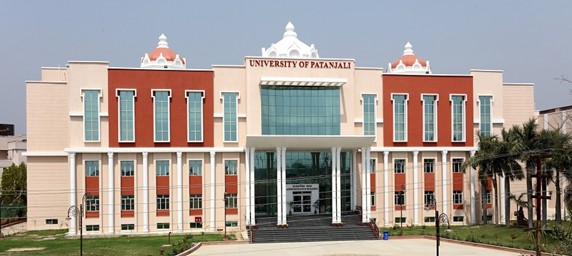Overview of Patanjali Ayurveda College
Introduction to the College
Patanjali Ayurveda College, also known as Patanjali Bhartiya Ayurvigyan Evam Anusandhan Sansthan, ranks among the leading institutions for Ayurveda education in India. Located in Haridwar, the spiritual hub of Uttarakhand, the college functions under the Patanjali Yogpeeth trust. It provides students with a unique environment that combines the ancient science of Ayurveda with modern academic standards. The college holds a strong reputation as a major Ayurveda medical institute and attracts learners from across India and abroad. Its programs train competent Ayurvedic physicians who integrate traditional healing systems with contemporary healthcare practices.
History and Foundation
The institution was established in 2010 under the guidance of Acharya Balkrishna and Yoga Guru Swami Ramdev. It was created as a core part of Patanjali Yogpeeth with the aim of reviving and promoting Ayurveda on both national and international levels. The vision behind the college emphasizes providing quality education, clinical exposure, and research opportunities in Ayurveda. Since its foundation, the college has grown steadily and gained recognition for its rigorous training and its contribution to holistic health education.
Affiliations and Accreditations
Patanjali Ayurveda College maintains affiliation with Uttarakhand Ayurved University, Dehradun, which governs its academic curriculum and examinations. The National Commission for Indian System of Medicine (NCISM), earlier known as CCIM, approves the programs offered at the college, and the Ministry of AYUSH, Government of India, recognizes them. These approvals give national validity to the college’s BAMS and postgraduate programs and align them with the regulatory framework of Ayurveda education in India. This accreditation strengthens the college’s status as a trusted Ayurveda medical institute.
Academic Highlights
The college offers a Bachelor of Ayurvedic Medicine and Surgery (BAMS) program, a 5½-year professional degree that includes a one-year internship. Along with this, the college offers PG courses with a significant number of seats. Its departments are equipped with modern laboratories, museums, and herbal gardens to support practical learning. The attached hospital offers OPD and IPD facilities, enabling students to gain extensive clinical training. Faculty members are appointed according to NCISM and Government of India norms, ensuring high academic standards.
Why It Stands Out
Patanjali Ayurveda College stands apart because of its strong institutional backing and its integration with the wider Patanjali Yogpeeth. It combines traditional Ayurvedic teachings with modern infrastructure, providing students with exposure to both classical texts and practical clinical methods. The college benefits from its attached hospital, which is one of the largest centers for Ayurvedic treatment in India. Its location in Haridwar adds spiritual depth to student life, making it a truly holistic place for education. The association with Patanjali’s global initiatives also provides graduates with broader opportunities in research, practice, and healthcare industries worldwide.
ABOUT : BAU Batumi medical education innovations
For NEET UG Counseling Guidance feel free to contact us on +91-8447798979 ,+91-9999768177 or check our website :www.thecareerasssistance.com
